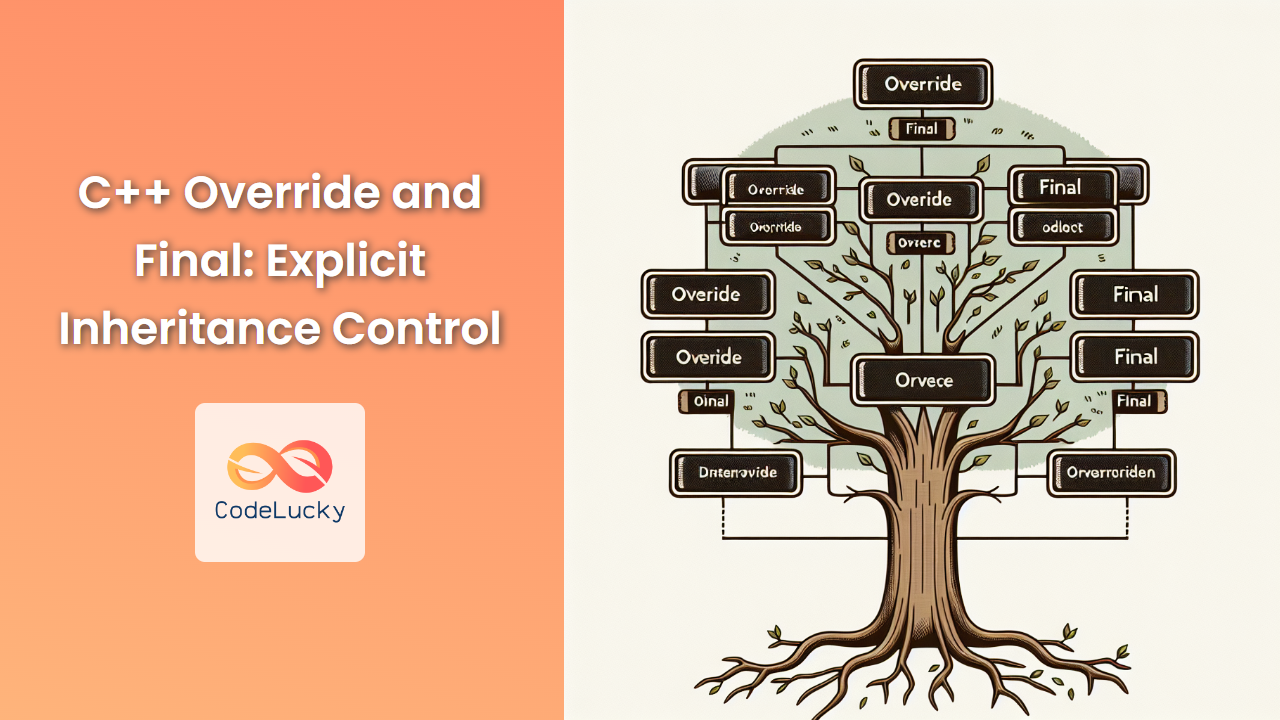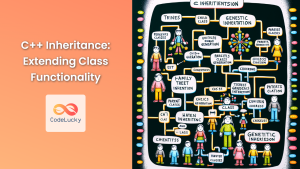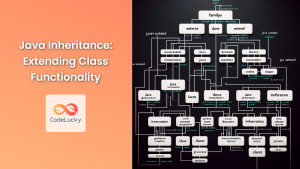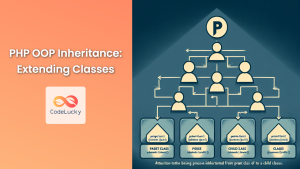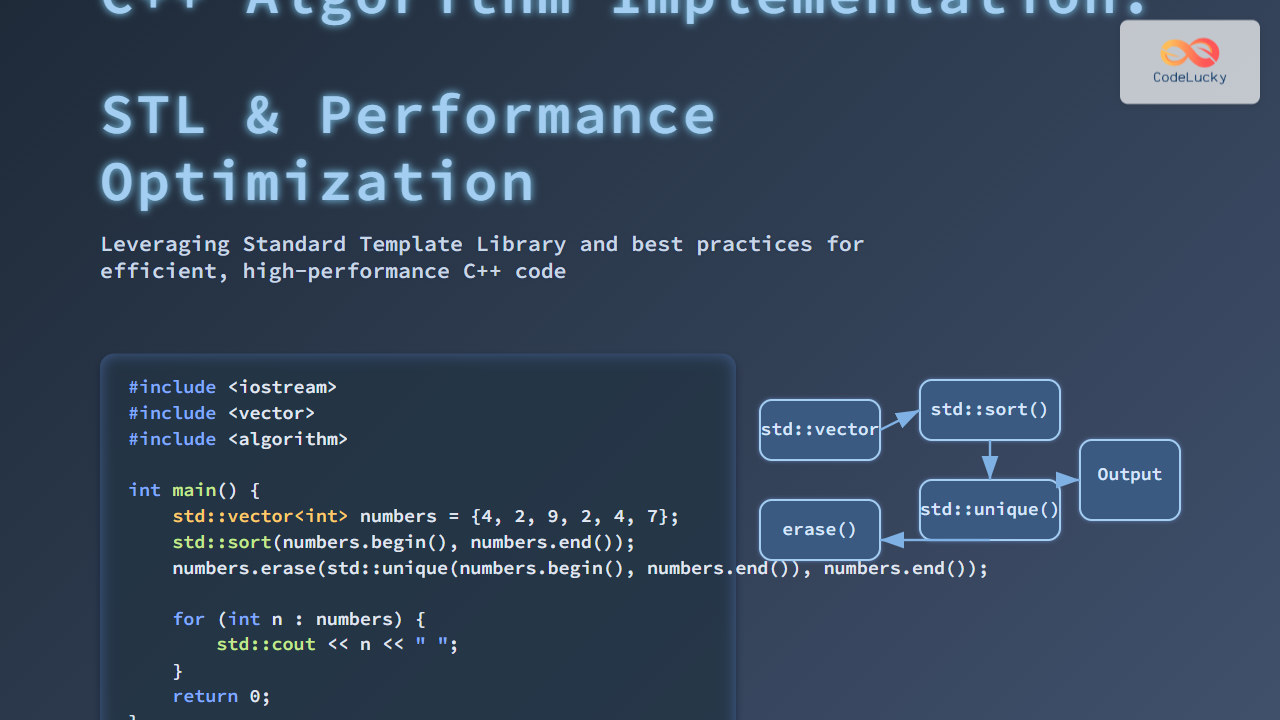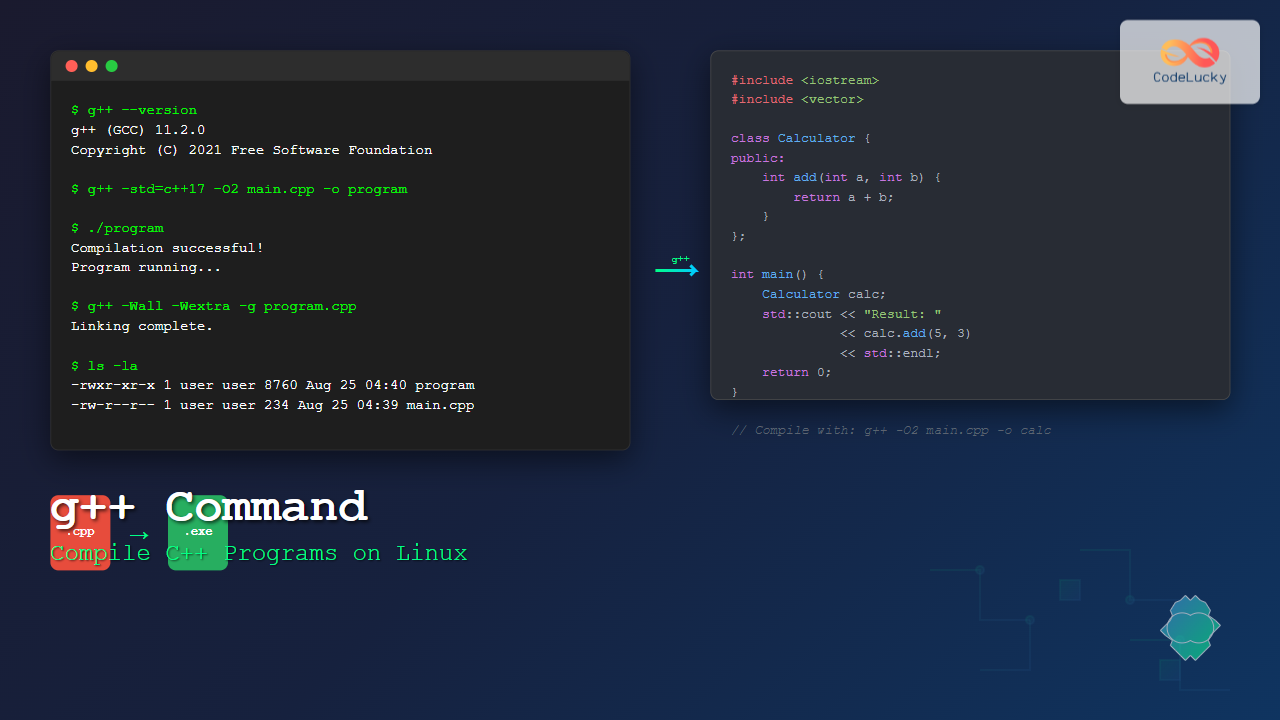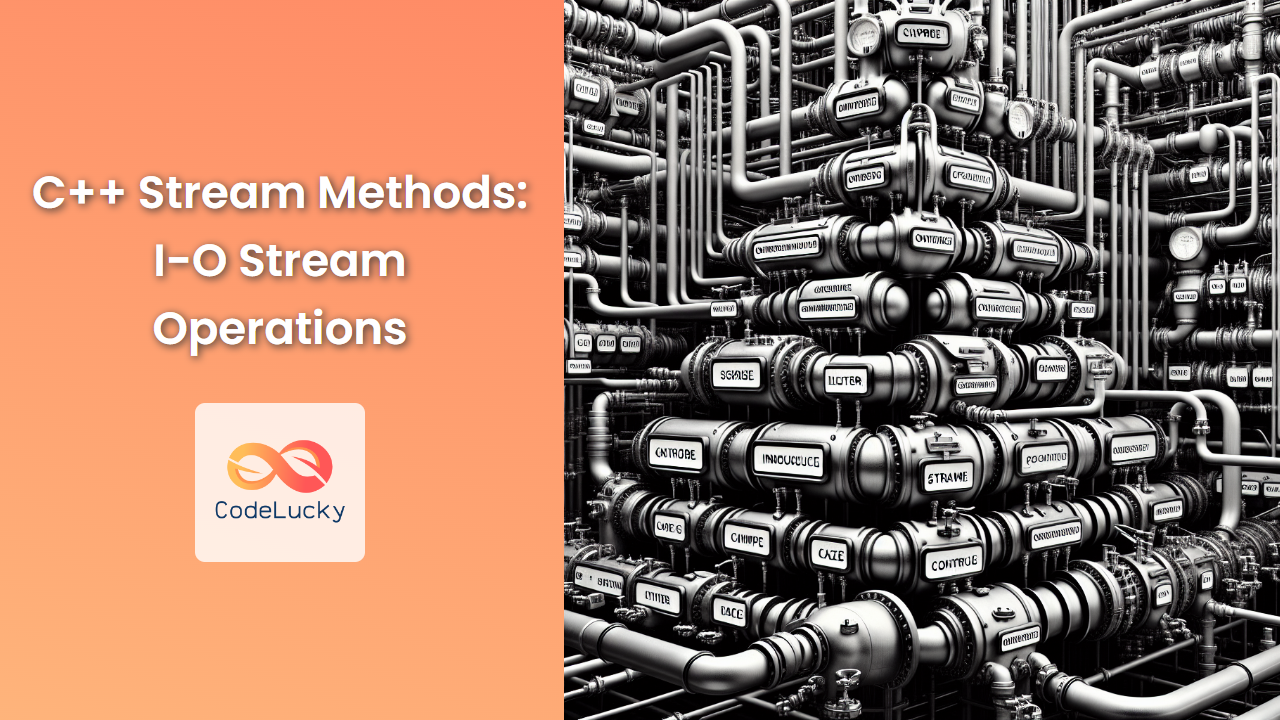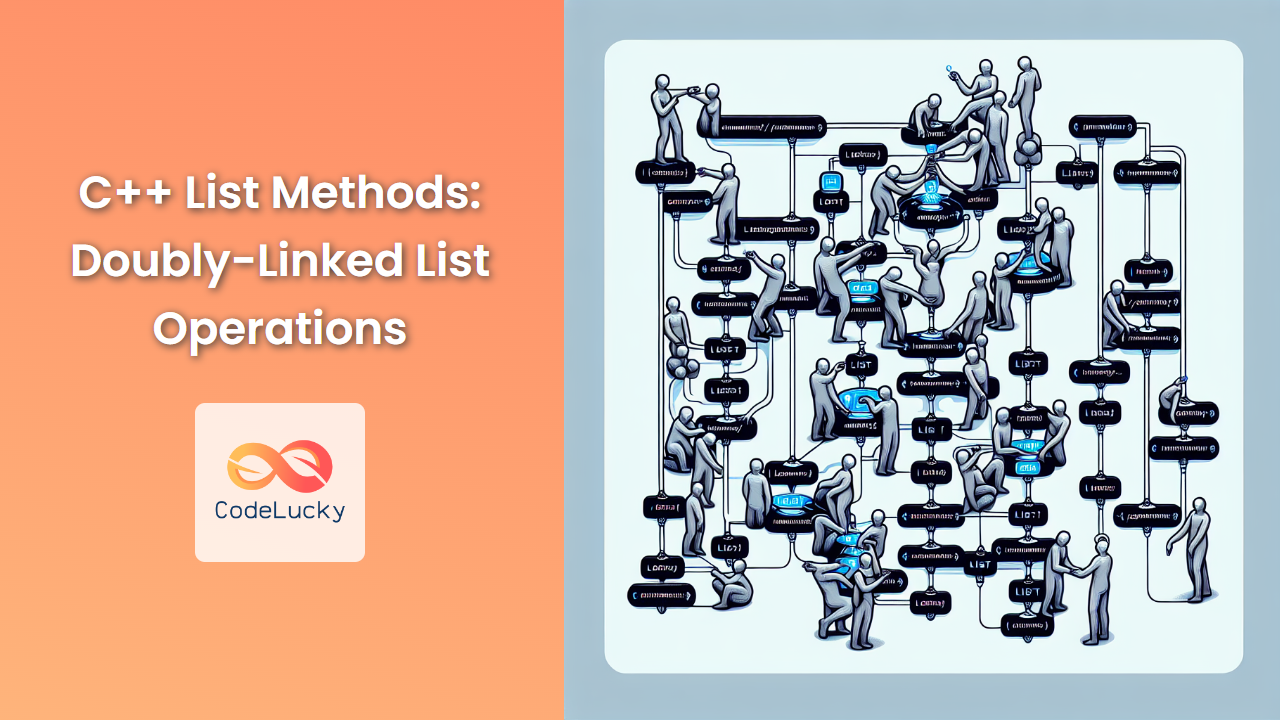In the world of object-oriented programming, inheritance is a powerful tool that allows developers to create hierarchies of classes, promoting code reuse and establishing relationships between different types. C++, as a language that strongly supports OOP principles, provides robust mechanisms for inheritance. However, with great power comes great responsibility, and inheritance, if not managed properly, can lead to subtle bugs and maintenance nightmares.
Enter C++11, which introduced two key keywords to help developers gain more explicit control over their inheritance hierarchies: override and final. These keywords serve as both documentation and compiler checks, ensuring that your intentions regarding virtual functions and class inheritance are clear and correctly implemented.
The override Specifier
The override specifier is used to indicate that a function in a derived class is intended to override a virtual function from a base class. This seemingly simple keyword provides several benefits:
- It makes the code more readable by explicitly stating the programmer's intent.
- It helps catch errors at compile-time if the function doesn't actually override anything.
- It prevents accidental creation of new virtual functions when a typo is made.
Let's dive into some examples to see how override works in practice.
Example 1: Basic Usage of override
#include <iostream>
class Base {
public:
virtual void foo() {
std::cout << "Base::foo()" << std::endl;
}
virtual void bar() {
std::cout << "Base::bar()" << std::endl;
}
};
class Derived : public Base {
public:
void foo() override { // Correct override
std::cout << "Derived::foo()" << std::endl;
}
void bar(int x) override { // Error: doesn't override anything
std::cout << "Derived::bar(int)" << std::endl;
}
};
int main() {
Derived d;
d.foo();
return 0;
}
In this example, Derived::foo() correctly overrides Base::foo(). However, Derived::bar(int) will cause a compile-time error because it doesn't actually override any function from the base class. The override specifier catches this mistake early, preventing potential runtime errors.
🔍 Compiler Output:
error: 'void Derived::bar(int)' marked 'override', but does not override
Example 2: Catching Subtle Errors
#include <iostream>
class Base {
public:
virtual void process(int value) {
std::cout << "Base processing: " << value << std::endl;
}
};
class Derived : public Base {
public:
void process(long value) override { // Error: different parameter type
std::cout << "Derived processing: " << value << std::endl;
}
};
int main() {
Derived d;
d.process(42);
return 0;
}
In this case, the override specifier helps catch a subtle error. The derived class's process function takes a long instead of an int, which means it's not actually overriding the base class function. Without override, this would compile but potentially lead to unexpected behavior.
🔍 Compiler Output:
error: 'void Derived::process(long int)' marked 'override', but does not override
Example 3: Overriding Const and Non-const Functions
#include <iostream>
class Base {
public:
virtual void display() const {
std::cout << "Base display (const)" << std::endl;
}
virtual void modify() {
std::cout << "Base modify" << std::endl;
}
};
class Derived : public Base {
public:
void display() override { // Error: Base::display() is const
std::cout << "Derived display" << std::endl;
}
void modify() const override { // Error: Base::modify() is not const
std::cout << "Derived modify" << std::endl;
}
};
int main() {
Derived d;
d.display();
d.modify();
return 0;
}
This example demonstrates how override can catch errors related to const-correctness. The display() function in Derived is not const, while it is in Base. Similarly, modify() in Derived is const, while it isn't in Base. The override specifier will cause compiler errors in both cases.
🔍 Compiler Output:
error: 'void Derived::display()' marked 'override', but does not override
error: 'void Derived::modify() const' marked 'override', but does not override
The final Specifier
The final specifier serves two purposes in C++:
- When applied to a virtual function, it prevents further overriding in derived classes.
- When applied to a class, it prevents the class from being inherited from.
Let's explore some examples to see how final works in practice.
Example 4: Using final with Virtual Functions
#include <iostream>
class Base {
public:
virtual void foo() {
std::cout << "Base::foo()" << std::endl;
}
};
class Intermediate : public Base {
public:
void foo() override final {
std::cout << "Intermediate::foo()" << std::endl;
}
};
class Derived : public Intermediate {
public:
void foo() override { // Error: cannot override final function
std::cout << "Derived::foo()" << std::endl;
}
};
int main() {
Intermediate i;
i.foo();
return 0;
}
In this example, Intermediate::foo() is marked as final, which means that Derived cannot override it. Attempting to do so results in a compiler error.
🔍 Compiler Output:
error: virtual function 'virtual void Derived::foo()' overriding final function
Example 5: Using final with Classes
#include <iostream>
class Base final {
public:
virtual void foo() {
std::cout << "Base::foo()" << std::endl;
}
};
class Derived : public Base { // Error: cannot inherit from final class
public:
void foo() override {
std::cout << "Derived::foo()" << std::endl;
}
};
int main() {
Base b;
b.foo();
return 0;
}
Here, Base is marked as final, which means that no class can inherit from it. Attempting to derive from Base results in a compiler error.
🔍 Compiler Output:
error: cannot derive from 'final' base 'Base' in derived type 'Derived'
Combining override and final
It's possible and sometimes useful to combine override and final specifiers. This combination explicitly states that a function is overriding a base class function and that it's the last override in the inheritance chain.
Example 6: Combining override and final
#include <iostream>
class GrandParent {
public:
virtual void foo() {
std::cout << "GrandParent::foo()" << std::endl;
}
};
class Parent : public GrandParent {
public:
void foo() override {
std::cout << "Parent::foo()" << std::endl;
}
};
class Child : public Parent {
public:
void foo() override final {
std::cout << "Child::foo()" << std::endl;
}
};
class GrandChild : public Child {
public:
void foo() override { // Error: cannot override final function
std::cout << "GrandChild::foo()" << std::endl;
}
};
int main() {
Child c;
c.foo();
return 0;
}
In this example, Child::foo() is marked as both override and final. This means it's overriding Parent::foo(), but GrandChild cannot override it further.
🔍 Compiler Output:
error: virtual function 'virtual void GrandChild::foo()' overriding final function
Best Practices and Guidelines
When working with override and final, consider the following best practices:
-
🌟 Always use
overridewhen overriding virtual functions. This makes your intentions clear and helps catch errors early. -
🔒 Use
finaljudiciously. While it can prevent unintended overrides, it also limits flexibility. Only use it when you're certain that a function or class should not be further derived or overridden. -
📚 Document your use of
final. When you usefinal, it's a good idea to comment on why you've made that decision, as it impacts the extensibility of your code. -
🔍 Review your class hierarchies regularly. As your codebase evolves, what once made sense as
finalmight need to change. Be prepared to refactor if necessary. -
🏗️ Design your class hierarchies carefully. Before using
final, consider whether your class hierarchy is well-designed and whetherfinalis the best solution to your problem.
Performance Considerations
While override and final primarily serve as tools for clearer code design and error prevention, they can also have performance implications:
-
overridehas no runtime cost. It's purely a compile-time check. -
finalcan potentially allow for devirtualization, where the compiler can optimize out the virtual function call because it knows no further overrides are possible. This can lead to performance improvements, especially in performance-critical code.
Example 7: Potential Performance Impact of final
#include <iostream>
#include <chrono>
class Base {
public:
virtual void operation() {
// Simulate some work
for(int i = 0; i < 1000000; ++i) {
// Do nothing
}
}
};
class Derived final : public Base {
public:
void operation() final override {
// Simulate some work
for(int i = 0; i < 1000000; ++i) {
// Do nothing
}
}
};
template<typename T>
void performOperation(T& obj) {
obj.operation();
}
int main() {
Base b;
Derived d;
auto start = std::chrono::high_resolution_clock::now();
performOperation(b);
auto end = std::chrono::high_resolution_clock::now();
std::chrono::duration<double> diff = end - start;
std::cout << "Time for Base: " << diff.count() << " s\n";
start = std::chrono::high_resolution_clock::now();
performOperation(d);
end = std::chrono::high_resolution_clock::now();
diff = end - start;
std::cout << "Time for Derived: " << diff.count() << " s\n";
return 0;
}
In this example, we're timing the execution of a virtual function call for both a base class and a derived class marked as final. Depending on the compiler and optimization settings, you might see a performance difference due to devirtualization of the final function.
🔍 Sample Output:
Time for Base: 0.00312 s
Time for Derived: 0.00298 s
Note that actual performance gains can vary widely depending on the specific code, compiler, and hardware. Always measure performance in your specific use case before making optimization decisions.
Conclusion
The override and final specifiers in C++ are powerful tools for managing inheritance hierarchies. They provide clarity of intent, catch errors at compile-time, and can even offer performance benefits. By using these features judiciously, you can write more robust, maintainable, and efficient C++ code.
Remember, good design is about making your intentions clear, both to other developers and to the compiler. override and final are excellent tools for achieving this clarity in your object-oriented C++ code.
As you continue to explore C++ and object-oriented programming, keep these features in mind. They're part of what makes C++ a powerful and expressive language for building complex software systems. Happy coding! 🚀👨💻👩💻

